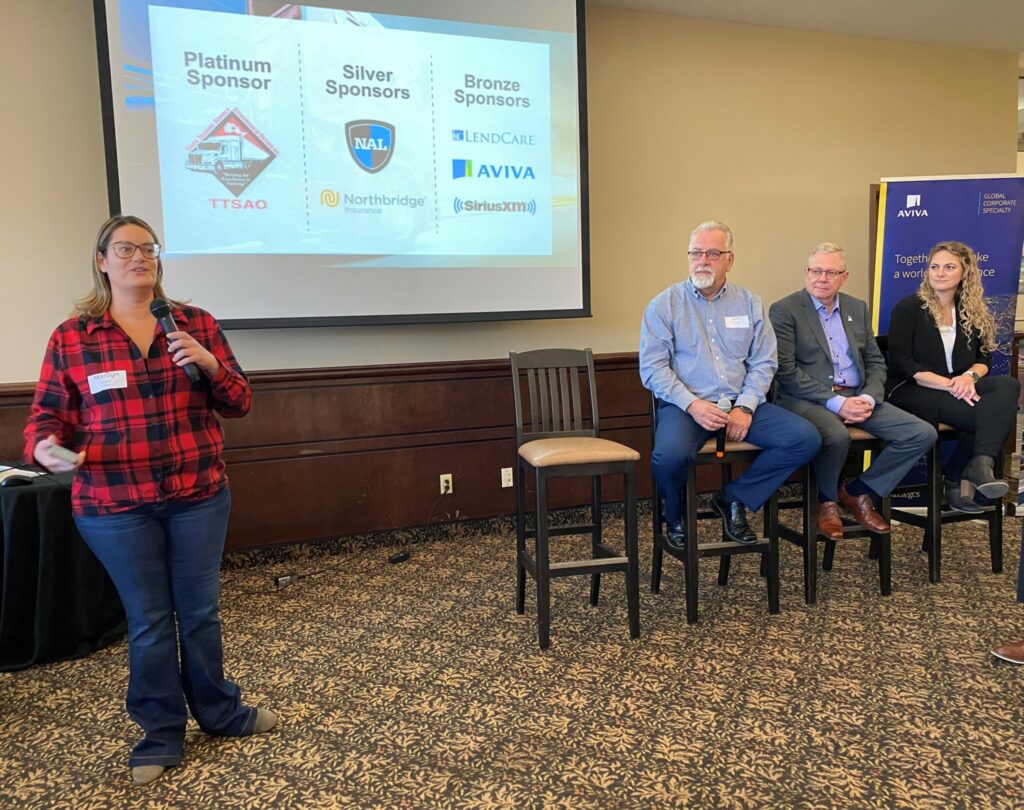Safety, compliance tech investment can save money down the road
Fleets must spend money on digitalization, but one has no idea what the failure to use technology for safety and compliance will cost.
If a carrier’s truck is involved in a collision and the back office has missed filing a document, it could be critical in terms of insurance payouts or even nuclear verdicts, said Leanne Drummond, business development manager at CPC Logistics Canada during a panel discussion at a Biz & Breakfast – Safety, Compliance and Insurance in the Trucking Industry event in Milton, Ont., on Oct. 27.
“It’s the easiest thing that you can do. A small investment, huge payoff,” she added.

The compliance and safety landscapes are evolving as things are getting digitized, including job postings, driver applications, qualification management, harsh event monitoring, dash cams, driver scorecards and feedback on performance.
Obtaining driver records electronically has taken away the possibility of counterfeiting, said panelist John Harrison, business analyst at TransRep. New tech should make things easy for the driver, he added.
Technology closes the documentation gap in the back office, especially during an audit, John Van Geest from Seaport Intermodal, told attendees. For example, if a fleet vehicle is involved in an incident, training records will be inspected and documenting training is key for insurance purposes, he added.
Balanced approach
Van Geest expressed concerned about the availability of technology that strips the capacity of a driver to adopt it. “Fleets must be able to balance the benefit to the driver in terms of their personal risk management versus putting technology in the truck that reduces their sense of self,” he said.
Younger drivers are keen on technology, but truckers in their 50s and 60s are more hesitant and see it as an erosion of their skill set, he added.
Moderator Marilyn Surber, transportation leader at Tenstreet warned the wheels can come off if technology is adopted too rapidly.
Continuous improvement
Fleets must have a culture that supports the rollout of technology, Drummond said. The driver improvement phase must be continuous, along with feedback, and must become part of their job.
Carriers receive driver pushback when things are not done properly, and employees are shocked with something that has not been part of their job.
Don’t dump tech on drivers, bring it in gradually, advises Harrison. “Have a handle on how it works and improves things and explain benefits and features,” he said. Target the open-minded individuals in the team first, because their enthusiasm can be contagious. Drivers are more likely to go to their fellow truckers than visit the office.
Impact on drivers
Also be aware of how the technology will impact drivers – will it give them extra time or take away their time, else you will have to deal with a lot of angry people.
Van Geest said some fleets consider the Ministry of Transportation the “principal’s office.” If safety managers spend time with officers at an inspection scale, they can take the information back to the fleets about what they are looking for and improve safety.
Fleets should keep an eye on changes in driver age and demographics, including immigrants entering the industry. Coaching must be adjusting to understanding capacity and technology can be used to teach technology. Videos on how to use technology, for example, can be helpful to drivers for whom English is not a first language, Van Geest noted.
Have your say
This is a moderated forum. Comments will no longer be published unless they are accompanied by a first and last name and a verifiable email address. (Today's Trucking will not publish or share the email address.) Profane language and content deemed to be libelous, racist, or threatening in nature will not be published under any circumstances.